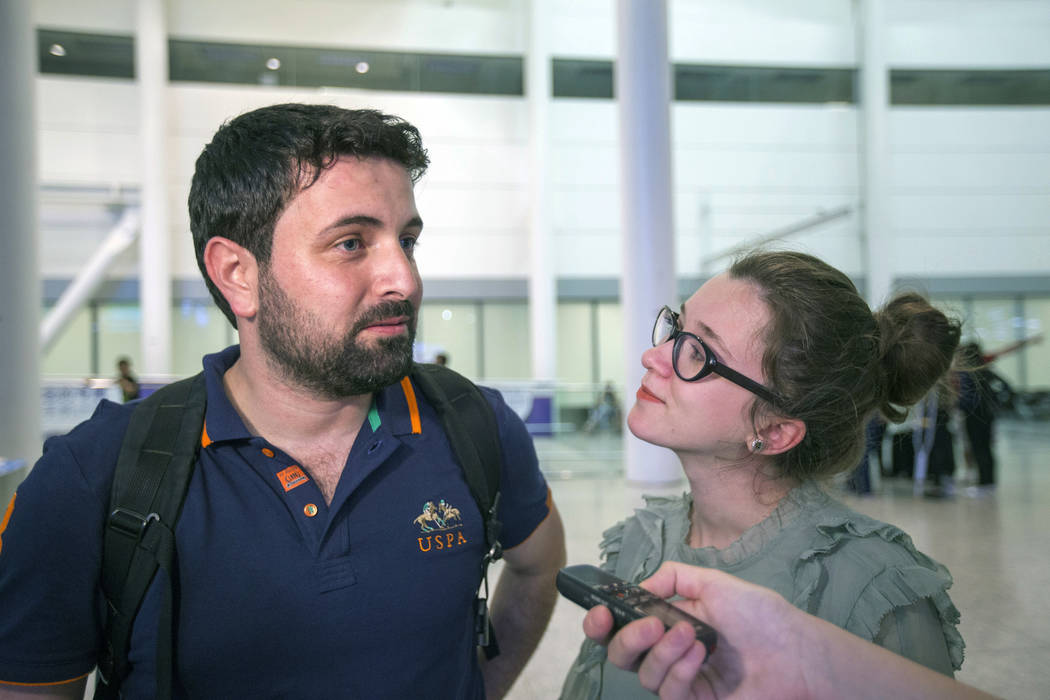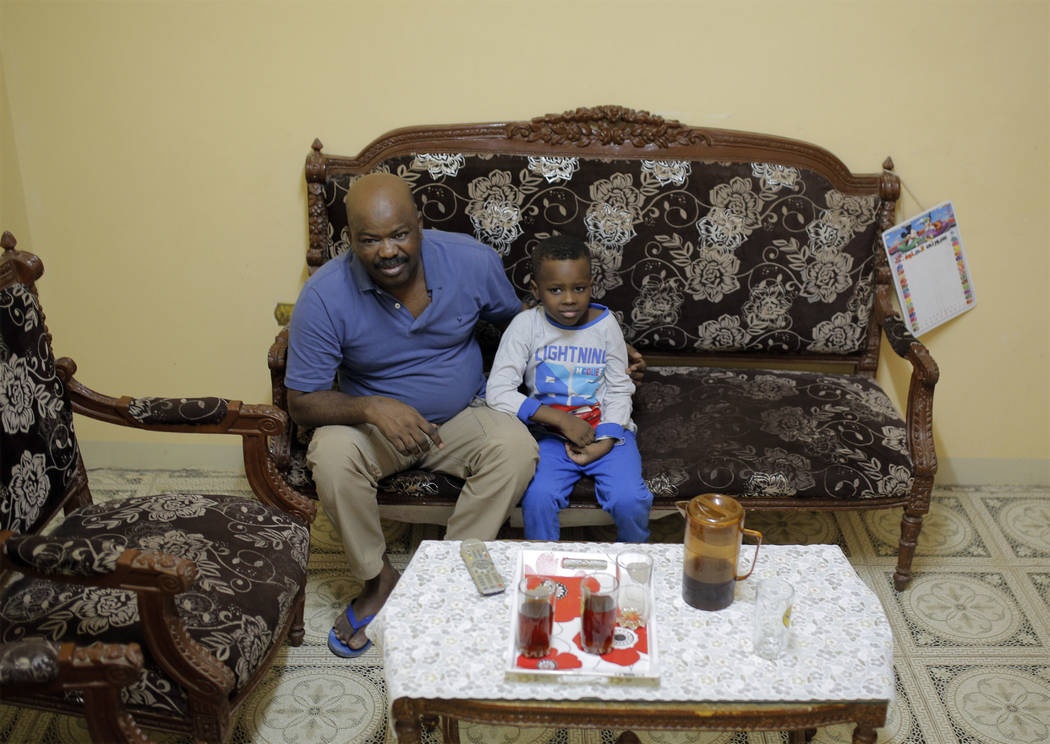Trump’s revised travel ban takes effect, less chaos expected



WASHINGTON — A scaled-back version of President Donald Trump’s travel ban took effect Thursday evening, stripped of provisions that brought protests and chaos at airports worldwide in January yet still likely to generate a new round of court fights.
The new rules, the product of months of legal wrangling, aren’t so much an outright ban as a tightening of already-tough visa policies affecting citizens from six Muslim-majority countries. Refugees are covered, too.
Administration officials promised that implementation this time, which started at 5 p.m., would be orderly. Customs and Border Protection spokesman Dan Hetlage said his agency expected “business as usual at our ports of entry,” with all valid visa holders still being able to travel.
Still, immigration and refugee advocates are vowing challenge the new requirements and the administration has struggled to explain how they will make the United States safer.
Under the temporary rules, citizens of Syria, Sudan, Somalia, Libya, Iran and Yemen who already have visas will be allowed into the United States. But people from those countries who want new visas will now have to prove a close family relationship or an existing relationship with an entity like a school or business in the U.S.
It’s unclear how significantly the new rules will affect travel. In most of the countries singled out, few people have the means for leisure travel. Those that do already face intensive screenings before being issued visas.
Nevertheless, human rights groups on Thursday girded for new legal battles. The American Civil Liberties Union, one of the groups challenging the ban, called the new criteria “extremely restrictive,” ”arbitrary” in their exclusions and designed to “disparage and condemn Muslims.”
The state of Hawaii filed an emergency motion Thursday asking a federal judge to clarify that the administration cannot enforce the ban against relatives — such as grandparents, aunts or uncles — not included in the State Department’s definition of “bona fide” personal relationships.
Los Angeles City Attorney Mike Feuer met with customs officials and said he felt things would go smoothly.
“For tonight, I’m anticipating few issues because, I think, there’s better preparation,” he told reporters at Los Angeles International Airport on Thursday night. “The federal government here, I think, has taken steps to avoid the havoc that occurred the last time.”
Much of the confusion in January, when Trump’s first ban took effect, resulted from travelers with previously approved visas being kept off flights or barred entry on arrival in the United States. Immigration officials were instructed Thursday not to block anyone with valid travel documents and otherwise eligible to visit the United States.
Karen Tumlin, legal director of the National Immigration Law Center, said the rules “would slam the door shut on so many who have waited for months or years to be reunited with their families.
Trump, who made a tough approach to immigration a cornerstone of his election campaign, issued a ban on travelers from the six countries, plus Iraq, shortly after taking office in January. His order also blocked refugees from any country.
Trump said these were temporary measures needed to prevent terrorism until vetting procedures could be reviewed. Opponents noted that visa and refugee vetting were already strict and said there was no evidence that refugees or citizens of those six countries posed a threat. They saw the ban as part of Trump’s campaign promise to bar Muslims from entering the United States.
Lower courts blocked the initial ban and a second, revised Trump order intended to overcome legal hurdles. The Supreme Court on Monday partially reinstated the revised ban but exempted travelers who could prove a “bona fide relationship” with a U.S. person or entity. The court offered only broad guidelines.
In guidance issued late Wednesday, the State Department said the personal relationships would include a parent, spouse, son, daughter, son-in-law, daughter-in-law or sibling already in the United States. It does not include other relationships such as grandparents, grandchildren, aunts and uncles. On Thursday, the State and Homeland Security departments had both expanded the range of bona fide relationships to include fiancés.
Business or professional links must be “formal, documented and formed in the ordinary course rather than for the purpose of evading” the ban. Journalists, students, workers or lecturers who have valid invitations or employment contracts in the U.S. would be exempt from the ban. The exemption does not apply to those who seek a relationship with an American business or educational institution purely for the purpose of avoiding the rules.
Refugees from any country will face similar requirements. But the U.S. has almost filled its quota of 50,000 refugees for the budget year ending in September and the new rules won’t apply to the few remaining slots. With the Supreme Court set to consider the overall ban in October, the rules could change again.
The travel ban may have the largest impact on Iranians. In 2015, the most recently available data, nearly 26,000 Iranians were allowed into the United States on visitor or tourist visas. Iranians made up the lion’s share of the roughly 65,000 foreigners from the six countries who visited with temporary, or non-immigrant visas that year.
American journalist Paul Gottinger, said he and his Iranian fiancee applied for a visa nearly a year ago but are still waiting on a decision. Gottinger says they were to wed at a Japanese garden in his parents’ home state of Minnesota this month but postponed the ceremony until August because they had not yet received the visa.
Now, he expects they will have to delay again.
“Every twist and turn of the courts, we’re holding our hearts and our stomachs are falling to the floor,” he said by phone from Turkey.
The new regulations are also affecting the wedding plans of Rama Issa-Ibrahim, executive director of the Arab American Association of New York.
She is Syrian-American and had planned to get married this fall. While her father in Syria may be able to get a visa, her aunts and uncles may well be blocked.
“I would love for them to be at this wedding, and unfortunately, they aren’t going to be able to be here,” she said, adding that the ceremony would be postponed.












